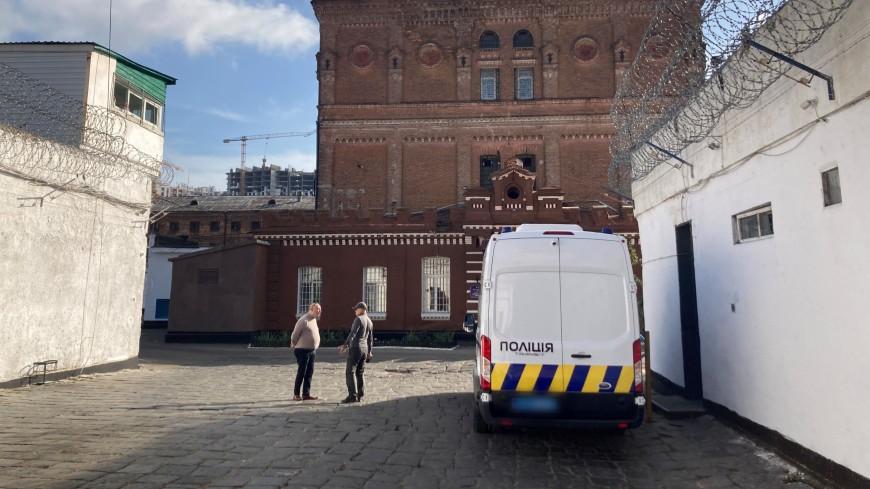The great majority of the interviewed persons who were, or had recently been, in police custody indicated that the police had treated them correctly. The Committee takes note of this positive finding, illustrating the results of efforts deployed by the Ukrainian authorities in recent years to improve the treatment of persons detained by the police. That said, the CPT’s delegation did receive allegations of physical ill-treatment (shortly after apprehension, in the police vehicle or at the police establishment, prior to questioning) and excessive use of force upon apprehension as well as of psychological pressure and threats.
Regarding the fundamental legal safeguards against ill-treatment (notification of custody, access to a lawyer and to a doctor), the CPT’s findings suggested that the situation had generally improved as compared to its previous periodic visit to Ukraine in 2017. In particular, it is positive that persons in police custody were almost systematically questioned in the presence of (usually ex officio) lawyers. The Committee also notes with interest the ongoing progress in introducing a nation-wide comprehensive electronic custody record (ARMOR) and the development of the institutions of Human Rights Inspectors (working in temporary holding facilities) and of the State Bureau of Investigation (tasked inter alia with the carrying out of criminal investigations into possible cases of ill-treatment by law enforcement officials).
As regards prison establishments, whilst welcoming the continued efforts made by the Ukrainian authorities over the past 25 years to reduce the country’s prison population, the Committee notes that the proportion of remand prisoners remained high and that many remand prisoners continued to be held in overcrowded conditions for prolonged periods of time.
The delegation received no allegations of recent ill-treatment by staff in any of the prisons visited. However, the visit revealed that the long-standing phenomenon of informal prisoner hierarchy was still prevalent throughout the Ukrainian prison system. In this context, the situation of persons considered to be “humiliated”, that is, those who find themselves at the bottom of this hierarchy, remains a matter of serious concern to the CPT. These prisoners continued to be rejected by the mainstream prison population and were required by the hierarchy’s “code of conduct” to comply with a range of restrictions (for example, to avoid any physical contact with other prisoners, not to use communal facilities, etc.). Moreover, such prisoners were frequently compelled to perform “dirty” work (such as cleaning toilets and collecting rubbish) for which they were not paid.
In some of the prisons visited, the general policy was to separate this category of prisoners from the general inmate population for protection reasons, grouping them together in dedicated cells. In some other establishments, however, no such policy was in place; as a result, the “low caste” prisoners were often exposed to a risk of violence, intimidation and exploitation by their cellmates. The CPT calls upon the Ukrainian authorities to develop and implement a comprehensive strategy for combating inter-prisoner violence and intimidation and tackling the phenomenon of informal prisoner hierarchy with all its negative consequences. Steps should also be taken to significantly increase staffing levels in the prisons visited, with a view to reinforcing the presence of custodial staff in the detention areas.
Most of the prisons visited by the delegation were located in old buildings which had not undergone any major refurbishment for years, if not decades. As a result, the bulk of the prisoner accommodation in these establishments was in a poor state of repair (damp-ridden and crumbling walls, damaged floors, rusty sanitary installations, bug-infested bedding, limited access to natural light and ventilation, etc.). The situation was particularly precarious at Odesa Pre-Trial Detention Facility (SIZO) where the conditions of detention of the great majority of prisoners could, in the CPT’s view, easily be considered as inhuman and degrading.
The Committee also notes with concern that the situation in respect of out-of-cell activities for remand prisoners had not improved since its previous visits. As in the past, with the exception of a small number of working prisoners, adult remand prisoners (including women) held in the prisons visited were effectively confined to their cells for up to 23 hours a day, with hardly any out-of-cell activities available to them, apart from daily outdoor exercise. The regime applied to life-sentenced prisoners was similarly poor; moreover, they were still not allowed to associate with prisoners from other cells.
As concerns the provision of healthcare to prisoners, recommendations are made, inter alia to increase the complement of general practitioners and the nursing staff resources in the establishments visited. The Ukrainian authorities are also called upon to improve the existing procedures for the recording of injuries observed on prisoners and to ensure that medical confidentiality is fully respected.
In the military detention facilities (“hauptvakhtas”) visited, the delegation received no allegations of ill-treatment of detained military servicemen by staff. Further, material conditions of detention in these establishments were on the whole acceptable, although some of the cells in Odesa and Zhytomyr “hauptvakhtas” had limited access to natural light. As regards the regime, it is of particular concern that there were no organised activities for servicemen on remand who were obliged to spend 23 hours per day inside their cells, often for long periods (months and even years).
- Read the report (in English, in Ukrainian)
- Read the executive summary (in English, in Ukrainian)
- The CPT and Ukraine




